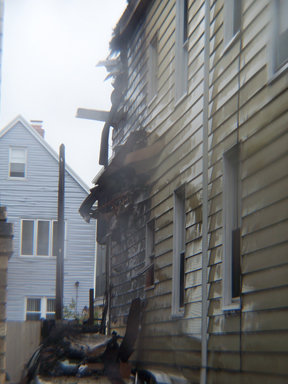The problem with illegal dwelling units isn’t just the fact that building owners rarely – if ever – pay their fair share of taxes, but that often these dwellings don’t meet basic safety codes.
The death of a man near Avenue A two years ago when an attic apartment caught fire spelled out the danger very clearly to city officials.
Since then, they have sought to find ways to combat this menace and to avoid the often deadly situations that illegal apartments cause.
At its meeting on Dec. 16, the City Council introduced two ordinances that would aid the municipality in its war against landlords that maintain illegal residences.
“If you have an illegal apartment, you will suffer the consequences.” – Gary La Pelusa
________
Although the city has declared war on illegal apartments, the profit motive for landlords in the past has outweighed the punishment. In introducing these new measures, the city hopes to make it unprofitable for landlords to put people’s lives at risk in order to collect rents on unsafe places.
Stiff fines and jail sentences
A landlord caught renting out a space illegally could be fined up to $750 per day for every day the space is occupied after being cited, and could also face up to 10 days in jail for the first offense, with a jump to $1,500 per day and 20 days in jail for the second offense, and as much as $2,500 per day and 30 days in jail for three or more offenses.
Under the second ordinance, landlords caught renting illegal spaces would be required to contribute $500 towards moving expenses for residents turned out of illegal apartments, and up to six months of rent for a legal apartment for those tenants.
In order to be considered legal, an apartment must receive a certificate of occupancy. This requires an inspection from the city to make sure that safety regulations are met as far as fire, health, and other codes are concerned. Landlords often rent such spaces either because they do not meet the basic standards and still want the additional income, or are seeking to avoid increased tax assessments.
Councilman Gary La Pelusa said enforcement in the past was difficult because the law was vague.
“These ordinances set the table for enforcement,” he said. “There are no gray areas. If you have an illegal apartment, you will suffer the consequences. You will be fined and forced to pay the cost of relocating those tenants.”
Fire death prompted action
The ordinances come as a result of a call from Mayor Smith to counter illegal apartments. This was highlighted by the death of a man in 2007, when he became trapped inside a third floor space during a fire.
“This is very specific,” La Pelusa said. “We’re telling landlords that if they have an illegal apartment, they better make it legal or get the tenants out or the landlords will be prosecuted.”
The council also agreed to adopt international standards for property maintenance, which will work in conjunction with the tenant laws to require property owners to prevent properties from deteriorating.
The City Council also authorized an agreement with Spatial Data Logic for the purchase of municipal management software that would allow various departments within City Hall to access the same database. By agreeing to award the contract before the end of the year, the city will get a $10,000 discount off the annual cost of $40,000 for the first year.
La Pelusa questioned the details, saying that the contract did not provide for the training of people. But Steve Gallo, chief of staff for Mayor Smith, said it was included.
